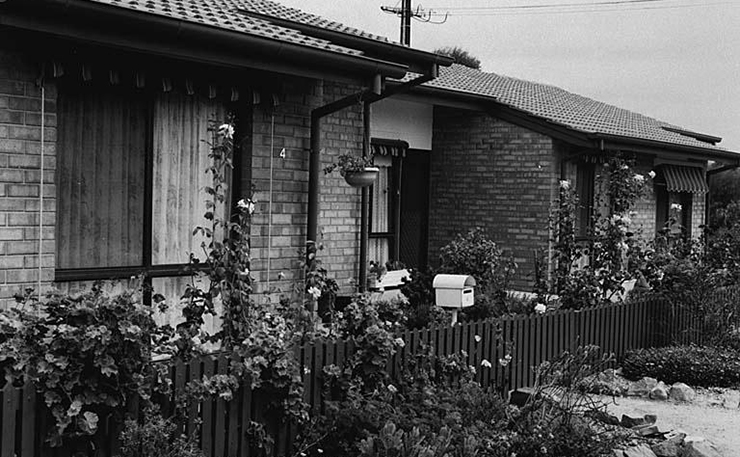The NSW Government is planning to lock the courts out of deciding who should and shouldn’t live in social housing. Lindsay Ash from the Redfern Legal Centre explains.
In January 2014 Sarah and her four children were evicted from their home near Newcastle. Sarah’s landlord had evidence that her ex-boyfriend, who didn’t even live with her, was dealing drugs from her social housing property.
Her ex-boyfriend, his mother, and even a police officer made statements that Sarah had nothing to do with it. There was no proof that any of her neighbours had been affected, and the children’s school principal wrote in her support. But the law was clear: as long as something illegal had happened in the house, her eviction was justified.
You would think that in light of this unjust decision the NSW government would take steps to avoid other blameless families from losing their homes. Instead it has done the opposite – it is changing the law in a way that could make decisions like the one in Sarah’s case more common.
In NSW, a Bill introducing harsher measures against illegal and anti-social behaviour in social housing hit Parliament in early August. It is being debated in the Upper House this week. It follows a series of similar measures introduced in other states, including Western Australia, Queensland and Tasmania over the last five years, but is arguably the most severe of them all.
The NSW Bill was expected to pass into law quickly and quietly. The government said it needed additional powers to tackle illegal activity in social housing, and that the extreme and fundamental changes made to the law by the Bill were ones that the vast majority were calling for.
However, in its short life, the Bill has been slammed by advocacy groups and parliamentarians alike for going too far. The Law Society said the changes are likely to increase homelessness in NSW, the state with the highest rates of homelessness in the country.
The Tenants’ Union says the Bill will remove important safeguards for tenants and make the Tribunal in these cases simply a tool for the government. Members who oppose the Bill have said that its “one size fits all” approach will create injustice and unfairness and expose vulnerable and disadvantaged people to eviction.
The criticisms of the Bill take two main forms. First, that the Bill attacks the fundamental principle that judges should be able to judge – it strips the Tribunal of its power to listen and to test evidence and to come to its own conclusions. It tells the Tribunal that it “must evict”, that its job is simply to rubber stamp the decisions of government, not to hear both sides of the story and decide what is fair.
Second, that the Bill has the potential to punish innocent people for crimes they did not commit. In social housing, a lease is usually just in the name of one person, which means that the person who stands to lose their home, and possibly also their chance of ever getting social housing again, isn’t necessarily the one who has done the wrong thing.
Take for example, Claudia*, a public housing tenant who faced eviction when police found cannabis plants growing in a cupboard under her stairs. Claudia was a victim of domestic violence, and the plants belonged to her partner, who no longer lived with her when they were found.
Claudia didn’t know about the plants, but Housing NSW wanted her evicted all the same. Under the planned mandatory eviction rules, Claudia would lose her home despite having no knowledge that anything illegal was happening.
If the Bill is passed, New South Wales will become the only state to go so far as to make eviction of a tenant mandatory for the illegal behaviour of somebody else. Making eviction mandatory when illegal activities have occurred in a house means that grandparents and parents can be evicted for the actions of their children and grandchildren, and that domestic violence victims like Claudia can be held responsible for the actions of their partners, whether or not they know about them.
The backlash against the Bill has caused the government to slightly soften its terms, but the changes do not go nearly far enough to make sure that innocent people will not be evicted into homelessness.
The Tribunal already can, and does, evict tenants who engage in illegal activity, but at the moment it still has the power to consider all of the circumstances, decide whether the law would be punishing the wrong person and whether eviction is justified.
The only way to ensure that innocent tenants aren’t made homeless is to keep it that way.
* Name was changed to protect the privacy of individuals.
Donate To New Matilda
New Matilda is a small, independent media outlet. We survive through reader contributions, and never losing a lawsuit. If you got something from this article, giving something back helps us to continue speaking truth to power. Every little bit counts.




